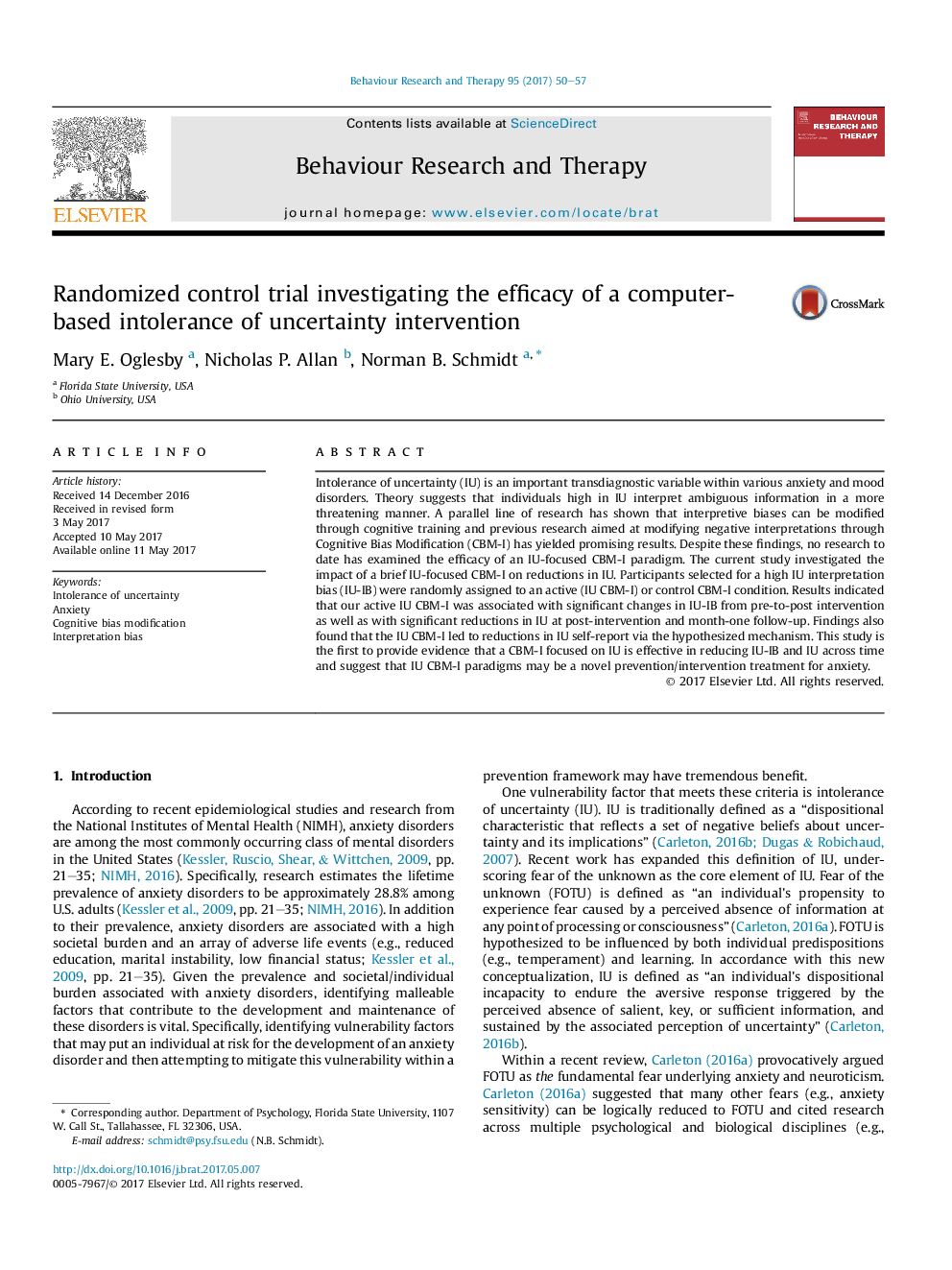| Article ID | Journal | Published Year | Pages | File Type |
|---|---|---|---|---|
| 5038247 | Behaviour Research and Therapy | 2017 | 8 Pages |
â¢Examined the efficacy of an intolerance of uncertainty (IU) focused treatment.â¢Utilized a brief, computerized intervention.â¢Successfully reduced IU across time.â¢Results maintained at one-month follow-up.
Intolerance of uncertainty (IU) is an important transdiagnostic variable within various anxiety and mood disorders. Theory suggests that individuals high in IU interpret ambiguous information in a more threatening manner. A parallel line of research has shown that interpretive biases can be modified through cognitive training and previous research aimed at modifying negative interpretations through Cognitive Bias Modification (CBM-I) has yielded promising results. Despite these findings, no research to date has examined the efficacy of an IU-focused CBM-I paradigm. The current study investigated the impact of a brief IU-focused CBM-I on reductions in IU. Participants selected for a high IU interpretation bias (IU-IB) were randomly assigned to an active (IU CBM-I) or control CBM-I condition. Results indicated that our active IU CBM-I was associated with significant changes in IU-IB from pre-to-post intervention as well as with significant reductions in IU at post-intervention and month-one follow-up. Findings also found that the IU CBM-I led to reductions in IU self-report via the hypothesized mechanism. This study is the first to provide evidence that a CBM-I focused on IU is effective in reducing IU-IB and IU across time and suggest that IU CBM-I paradigms may be a novel prevention/intervention treatment for anxiety.
